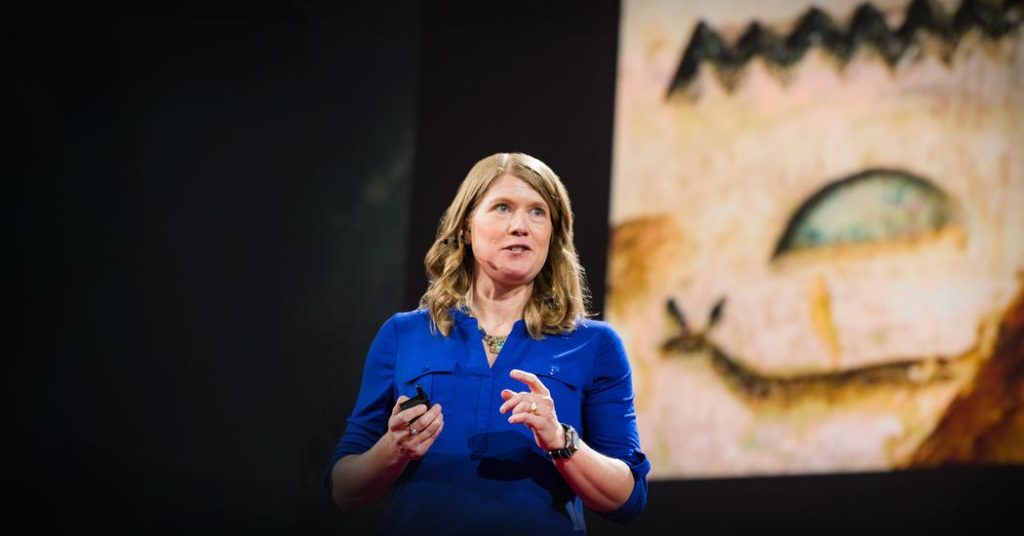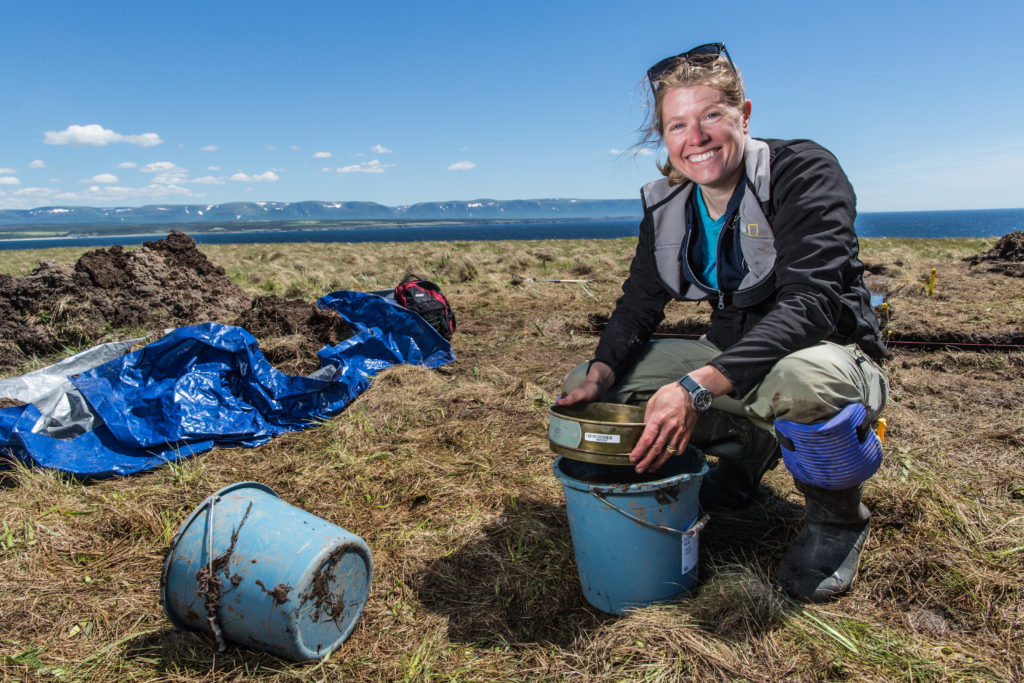Women of Influence: UAB space archeoligist Sarah Parcak

“Sharing knowledge is the greatest of all callings. There’s nothing like it in the land.” University of Alabama at Birmingham (UAB) professor of anthropology Sarah Parcak told this ancient Egyptian quote to a crowd of listeners during a 2012 TED talk (which has since been viewed over 1 million times) on her work to detect hidden archaeological sites with satellites and Infra-red technology, also known as “space archeology,” and Parcak does just that. Parcak was born in Bangor, Maine, earned her bachelor’s degree in near Eastern languages and civilizations at Yale University in 2001, and her Master’s and Ph.D in Egyptian archaeology from Trinity College at Cambridge. From there, she taught Egyptian art and history at the University of Wales in Swansea before moving to Birmingham to work at UAB, where she founded the Laboratory for Global Observation. Parcak has since directed multiple surveys and excavation projects from the Sinai Peninsula, and the Nile’s East Delta to Romania, Nabetaea, Tunisia and Italy. Her work has been featured in three documentaries, the 2011 documentary Egypt: What Lies Beneath, the 2012 documentary Rome’s Lost Empire and Vikings Unearthed. Parcak’s team of archaeologists at UAB has claimed the discovery of 17 pyramids, more than 1,000 tombs and 3,000 settlements in the vicinity of Sa el-HagarIn, and in 2015 she collaborated on the identification of a possible Norse settlement in Newfoundland. But the spotlight really hit her in 2016 when she won the 2016 TED prize, a coveted prize of $1 million, which she used to fund the Global Xplorer platform; a web-based platform designed to “revolutionize how modern archaeology is done altogether, by creating a global network of citizen explorers.” The first goal of Global Xplorer is to map out the entire country Peru — the home of Machu Picchu, the Nazca lines and other archaeological wonders waiting to be discovered. “We will do nothing less than use state-of-the-art technology to map an entire country,” said Parcak at the TED Summit in 2016. “This is a dream started by Hiram Bingham, but we are expanding it to the world, making archaeological exploration more open, inclusive, and at a scale simply not previously possible.” One of Parcaks goals is to preserve the history, and save sites in the middle-east from looters, “the past few years have been horrific for archaeology. I’ve spent a lot of time, as have many of my colleagues, looking at the destruction,” Parcak said when she accepted the TED prize in 2016. “This Prize is not about me. It’s about our field. It’s about the thousands of men and women around the world, particularly in the Middle East, who are defending and protecting sites.” She has been selected for many top honors including being named on of the 100 Leading Global Thinkers by Foreign Policy magazine, and is also a National Geographic Society Archaeology Fellow, Fellow of the Society of Antiquaries, and a 2013 TED Senior Fellow. Parcak’s work has led to many discoveries and excavated an abundant amount of historical sites otherwise lost to the modern world, she is also bringing together “citizen scientists” from around the globe to learn, and work together to open windows to the past for our modern world. For her service to our world, the students at the University of Alabama, and for her relentless pursuit of unearthing the past for our modern eyes, Sarah Parcak is doubtlessly an Alabama woman of influence.
Alabama’s Sarah Parcak among 100 leading Global Thinkers

Alabama’s Sarah Parcak, Ph.D. — an archaeologist and associate professor in the UAB College of Arts and Sciences Department of Anthropology — is among this year’s 100 Leading Global Thinkers selected by Foreign Policy magazine. Every year the magazine recognizes the world’s pre-eminent thought leaders and public intellectuals in its annual issue “100 Leading Global Thinkers.” Honorees are selected by the magazine’s editors based on their standout contributions over the past year and ability to translate ideas into action that change and shape the world. They are organized into nine categories — decision-makers, challengers, innovators, advocates, artists, healers, stewards, chroniclers and moguls. Parcak can be found among the innovators. “Like never before, global development and war are pushing archaeologists into a race against time — so much so that Sarah Parcak is revolutionizing the already-modern field of space archaeology,” said the FP Global Thinkers summary of the UAB professor. “That discipline uses satellite imagery to uncover the planet’s historical artifacts and can track looting and destruction patterns. However, there aren’t enough archaeologists to study the world’s surface before parts of it disappear. The summary continued, “Now Parcak is recruiting her own citizen army for the research. GlobalXplorer, which she developed this year, functions like ‘a super-high-tech version of Google Earth,’ and allows anyone with an Internet connection to scrutinize satellite imagery of ancient locales. Parcak hopes GlobalXplorer will be the way to ‘find and protect the world’s hidden heritage.’” The eighth annual Foreign Policy special issue celebrating 100 Leading Global Thinkers is based on the theme “The Case for Optimism.” The honorees range from politicians such as Hillary Clinton and Angela Merkel, to acclaimed, avant-garde artists like Morehshin Allahyari, to billionaire philanthropists such as Mark Zuckerberg and his wife Priscilla Chan. “When we consider as we do each year the work of the world’s leading thinkers, we find that the vast majority of them – in science, technology, business, culture and government – are actually moving us forward and helping to solve the problems of the past,” said David Rothkopf, the magazine’s editor, in a press release.


